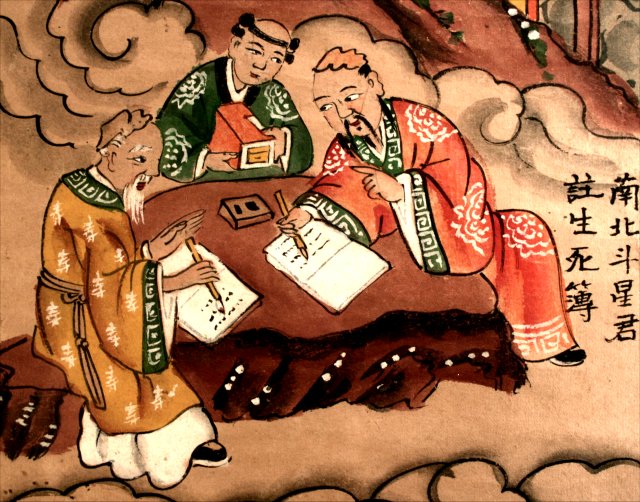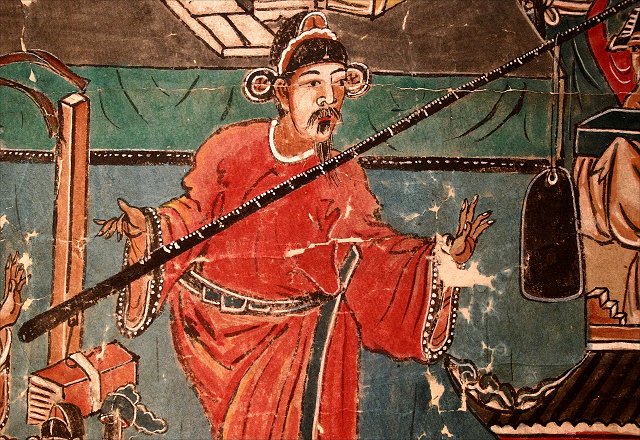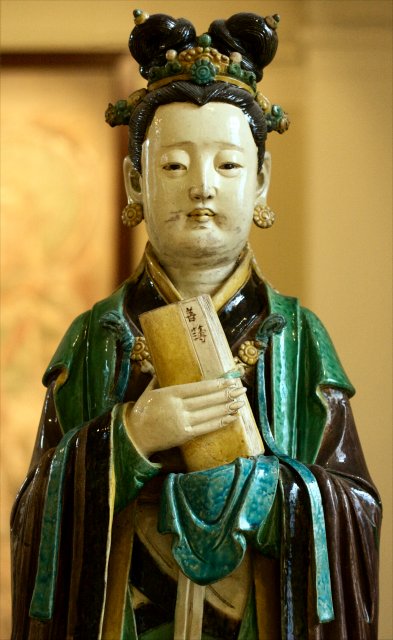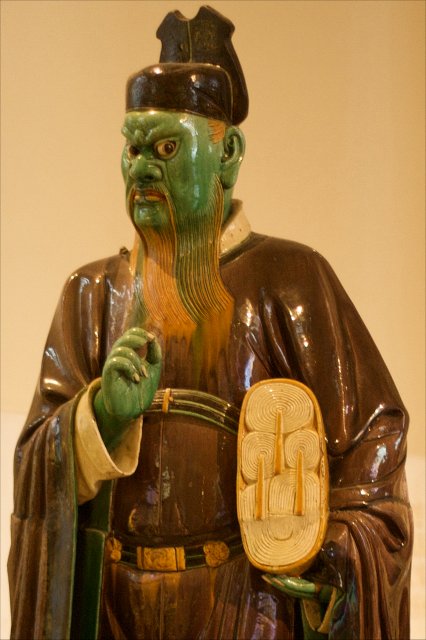
Translation
The lords of the Southern and Northern Dippers fill out the Records of Life and Death.
The recording of merits and demerits was not in the hands of the gods alone. The mechanical retribution system of hell might best be put into a grander context of the living often attempting to figure out ways to quantify and calculate the relatively intangible notions of virtue and morality. For example, over the last millenium ledgers were often published to help one assign point values to good and bad deeds, helping the recorder determine whether he or she had been a good person each day. One Ming ledger might assign five demerits for urging a person to litigation or three merits for bearing slander without complaint. Nor could the recorder cheat because cosmic accountants were watching from overhead. The "Tract of the Most Exalted on Action and Response" compiled in the Song identifies the lord of the Northern Dipper as carrying out this duty, or as Cynthia J. Brokaw translates:
"Good and evil are recompensed as inevitably as shadow follows form. Therefore, there are spirits overseeing manís misdeeds in heaven and on earth. According to the gravity of his transgressions, they reduce his lifespan by the appropriate number of hundred-day units. After a one hundred-day unit is deducted, poverty comes upon the man, he meets with calamity and misery, all men hate him, while happiness and good fortune flee him, and evil stars torment him. When his hundred-day units are all exhausted, he dies.
"In heaven there are also the Three Towers and the Lord of the Northern Dipper Stars, who record a manís crimes and evil deeds. They reduce his lifespan by twelve-year units or hundred-day units according to this record. Inside a manís body there are the Three Worm Spirits who on every fifty-seventh day of the sixty-day cycle report a manís crimes and transgressions to the Heavenly Tribunal. On the last day of each month, the Kitchen God also makes such a report.
"Whenever a man commits a grave transgression, twelve years are deducted from his lifespan; whenever he commits a small one, one hundred days are deducted. All transgressions, great and small, have an infinite number of causes. He who would seek immortality must first flee these. Then he will be able to enter the true way and avoid the false."
Thus the hells with their constant emphasis on retribution in death should be viewed against this larger tradition that would measure out all "action and response" in life as well.

 |
 |
Two judge's assistants, the woman holding a slender volume of good deeds and the man holding copious roles of bad deeds.
Ming Dynasty (16th century) stoneware, British Museum.